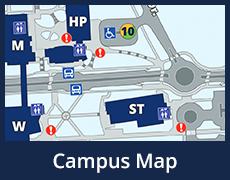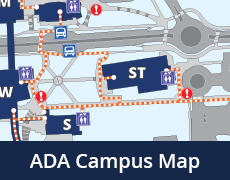Policy Number: III-23
Last Reviewed: August 19, 2024
Responsible Dept.: Human Resources
Office to contact for clarifications: Human Resources
A signed copy of this policy is available in the President’s Office.
Purpose:
§ 2.2-2817.1 of the Code of Virginia and the Department of Human Resources Management (DHRM) require each state agency to establish a telework procedure and conditions under which eligible college employees may telework.
This policy is pursuant to and in compliance with the Code of Virginia and Department of Human Resource Management (DHRM) Policy 1.61, Telework.
Definitions:
Eligible Employee – Telework may apply to full-time classified, 12-month administrative or professional faculty employees, teaching faculty, and regular hourly part-time positions excluding tutors and any student employee.
Telework -Telework allows eligible employees to work at an alternate location, such as a home office. Employees perform the same work they would perform in the central workplace in accordance with their same performance expectations and other agreed upon terms.
Standard Telework Agreement – Pre-approved agreement required for all eligible employees teleworking. Full-time teaching and adjunct faculty will have expectations around modality and flexibility addressed in their employment contracts without the execution of a Standard Telework Agreement.
Telework Eligible Positions – Eligible positions are determined by the type of work and job requirements of the position, as approved by the college president. Determinations for positions that are eligible for telework will be focused on the job requirements and the ability to perform duties assigned while teleworking. Position eligibility for telework does not change unless the duties, responsibilities, or the requirements for the position change. Telework eligibility does not automatically move with an employee who assumes a new position or apply when a new employee moves into a position previously approved for teleworking.
Policy:
DHRM Policy 1.61 will take precedence over and supersede college policy as it applies to classified employees. DHRM’s telework policy does not apply to faculty positions; however, the spirit of DHRM policy and the governor’s initiative on teleworking will be applied by the college president for: 1. determining if telework will be permitted; and 2. all terms and conditions of the Standard Telework Agreement.
Telework arrangements are operational and position considerations, not employee rights or benefits; therefore, decisions to utilize such arrangements are based on the position, not the person. Standard Telework Agreements may be approved by the college president when it is in the best interest of VWCC; supports the attainment of the college’s mission; meets the operational needs of the position; and complies with DHRM policy and the governor’s initiative on telework. Services delivered by the position, and if those services will be impeded by telework, will be highly considered when reviewing requests. Telework may be approved as a condition of employment provided all required approvals are satisfied.
In accordance with law and policy, the final approval to permit any eligible employee to telework one day per week will rest with the college president. A designee is not permitted. The college president at his or her discretion may choose to deny a telework request. When two days a week are requested, the cabinet secretary of the Commonwealth of Virginia and the college president must approve. When more than two days a week are requested, the college president, the cabinet secretary, and the chief of staff must approve the request. As of this writing, DHRM policy on telework does not apply to faculty; therefore, 12-month administrative and professional faculty members will not be held to the cabinet secretary and/or chief of staff approvals; however, the college president shall use the spirit of DHRM policy and the governor’s initiative when reviewing requests submitted.
Faculty teaching hybrid or distance learning classes will not require a telework agreement between the college and the faculty member. However, the faculty member and their respective dean must use the spirit of policy and the governor’s initiative when agreeing on the contractual terms and conditions of the faculty member teaching said course(s) from their home or a satellite location. By the nature of a teaching faculty position, this standard includes performing any work from home.
General Provisions
- Telework does not change the terms and conditions of employment or the required compliance with all state and federal law; and, DHRM, VCCS, VWCC policies and procedures.
- Telework arrangements are not employee rights or benefits.
- The college and/or respective supervisor reserves the right to end the telework agreement at any time. Generally, the employee will be given advance notice of the termination of telework, but advance notice is not required. When in the interests of organizational benefit and/or for reasons such as, but not limited to, declining performance, employee or supervisor violations of policies; procedures; and deadlines, or the failure to fulfill the intent of the telework agreement, advance notice is not required and telework will end immediately.
- Supervisors and participating employees must adhere to and abide by all established applicable policies and procedures. Failure to abide by state and/or college policy or procedures is subject to disciplinary action.
- All required requests, forms, and agreements are to be completed and approved prior to the inception of teleworking.
- Human Resources must be notified prior to the termination of a telework agreement.
- Telework arrangements are not intended to change the terms and conditions related to hours of work, leave, holidays or other absences, paid or unpaid.
- Telework is not intended to be used in place of paid leave. Employees who work from an alternate work location are required to take annual leave or other appropriate approved leave, paid or unpaid, when they are not either present or performing work at their alternate work location during their established work hours.
- An employee who has been approved for telework shall observe the college’s alternate holiday schedule. Telework performed on a holiday closing is only permitted when required by the supervisor and approved in advance by the vice president of Financial and Administrative Services for overtime pay or comp leave, if applicable.
- The college will determine if it is appropriate to offer telework arrangements as an opportunity for temporary, partial, or full return to work due to illness/injury or for disability accommodations. Teleworking as a form of an accommodation will be determined on a case-by-case basis and shall conform to the provisions within all applicable policies, procedure, and the Americans with Disabilities Act as Amended.
- Telework may be used for unplanned or limited temporary circumstances. In most cases, the employee must have a pre-approved telework agreement on record. The pre-approved scheduled telework day(s) of the week may be altered with supervisory approval to different day(s) of the week due to unplanned or temporary circumstances. The supervisor will exercise discretion in determining whether an employee can accomplish all or part of his/her duties from the telework site in such a situation and whether leave should be used for all or part of the day.
- Supervisors may require telework employees to report to a central workplace as needed for work-related meetings, events, or to meet operational needs. The supervisor may want to meet with the employee in the alternate work location as needed to discuss work progress or work-related issues.
- Call-in provisions will normally include an expected time frame for reporting that shall be consistent with the department’s call-in provisions for employees working in a central location.
- The college does not assume responsibility for teleworker’s operating costs, home maintenance, or other costs incurred by teleworkers in the use of their homes or other alternate work locations. Telework locations must not require VWCC to incur costs that it would not normally incur if the work was completed onsite.
- A job-related injury or illness that occurs in the employee’s alternate work location during established work hours should be reported within 24 hours to the Human Resource Office. Employees agree to practice the same safety habits they would use at the college and to maintain safe conditions in their alternate work locations. A job-related injury or illness shall be investigated by the immediate supervisor immediately upon notification.
- The college president in coordination with Human Resources and the employee’s supervisor may approve telework as an accommodation due to an employee’s or immediate family member’s injury, illness, or temporary disability. The temporary telework arrangement is limited to a 2-week consecutive period. Documentation from a physician is required that supports the request. The employee is also required to submit a Standard Telework Agreement form.
- The college president in coordination with Human Resources and the employee’s supervisor may approve a qualified employee for full-time telework as a form of a reasonable accommodation under the Americans with Disabilities Act. A documented disability must be presented requiring the medical need for telework. Teleworking must not present itself as an undue hardship nor may telework prevent the employee from fulfilling the essential functions of their position. Documentation from a physician is required stating the medical need for telework and duration. In addition, the following documents must also be completed: 1.) Alternate Work Arrangement Request form, 2.) Alternate Work Arrangement Determination form, and 3.) Standard Telework Agreement form.
Supervisor Considerations
Managing the operations of each department is a dynamic and evolving challenge; therefore, decisions that govern telework arrangements are subject to change.
If the supervisor deems it appropriate, the initial telework agreement may be established on a month-to-month basis to ensure that expectations are being met. If successful completion of assigned tasks and objectives occur during this time, the supervisor may then agree to extend the agreement for a longer period. The telework arrangement may be terminated by the supervisor at any time due to non-compliance with established laws, policies, procedures, and/or associated college deadlines, due to position responsibility changes, or any other circumstances. The employee may also initiate the termination of the telework agreement. Optimally, both the employee and the supervisor should attempt to provide reasonable notice before altering or terminating the telework agreement. A new supervisor may choose not to automatically continue an existing telework agreement.
Annual Review of Telework Agreements
Pursuant to DHRM Policy 1.61, active telework agreements must be reviewed annually and submitted to the college president for renewal. The annual review must include a review of the employee’s job duties, along with her ongoing performance in the role. If the review requires a change to the telework agreement those changes must be approved through the process defined above. It is important to remember telework agreements are not employee rights or benefits and that the assignment of telework does not change the conditions of employment or required compliance with polices. Regardless of the timing of an annual review, the college may alter or withdraw a telework agreement at any time. Telework is only permitted if the position allows, and if the employee’s performance and the services delivered are not diminished.
Additional Information:
References
Code of Virginia § 2.2-2817.1
Virginia Western Community College Telework Procedure
Consideration Checklist for Teleworking
Memorandum of Understanding for Teleworking
Agreement for Teleworking
DHRM Standard Telework Agreement
DHRM Policy 1.61 Teleworking
Review and Revision History
Please note: Tracking of revision histories started in March of 2023. Changes occurred prior to this time.
| Date | Description |
|---|---|
| 2/1/2024 | – Emphasized that telework arrangements are neither rights nor benefits – Aligned language with DHRM Policy 1.60 – Expanded the conditions to be considered and process to be followed when reviewing the possibility of and approving telework agreements |
Contact Us
540-857-VWCC (8922)
24/7 Student Support Center
855-874-6690
TTY: All users 711
Address:
3094 Colonial Ave., SW
Roanoke, VA 24015
VWCC Alerts
We use the VW Mass Notification System to immediately contact you during a major crisis or emergency. Get more info and register!




